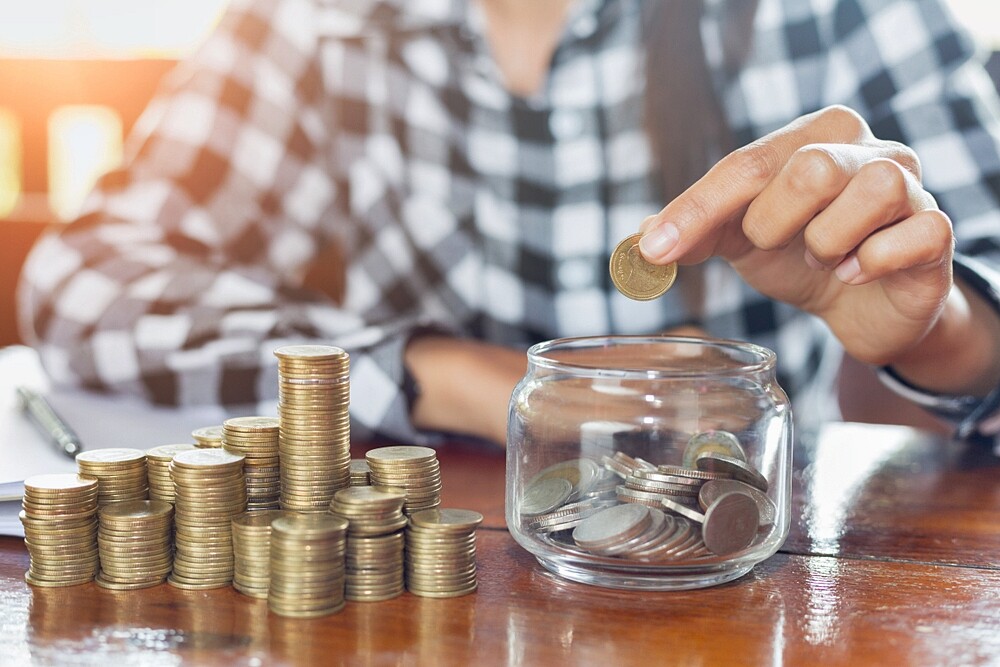More and more people are discovering frugalism as a way of life – but what is behind it? We reveal how frugalists live frugally and happily.
What does frugalism mean?
Live frugally, spend little money and still – or rather: because of it – be happy: This is the idea behind frugalism. Those who live frugally turn their backs on consumption and spend their money only on the really important things.
The movement comes from America and became famous here through bloggers like “Mr. Money Mustache”. The frugalism movement is closely related to the FIRE concept (Financial Independence, Retirement early), whose followers want to be financially free as soon as possible and no longer have to go to work for money.
In Germany, the blogger Oliver Nölting is best known as a frugalist. He plans to retire at the age of 40 and has therefore been living frugally for many years with a lot of zest for life.
Why should renunciation make people happy?
Spending money only on essentials, but no longer on what is fun? That sounds like a boring, dull life, doesn’t it? Well, you might think so at first, but frugalists are not grim misers who sit at home by candlelight every day and look holes in the air.
If you follow the frugal way of life, you ask yourself what makes you really happy and what brings you forward in life. Author Michael Robert (100 Tips for Frugalists) compares life as a frugalist with the life of a student: “A simple life in a shared room, with lots of parties and cheap holidays. Plus maybe a bit of studying and a small part-time job. That’s all it took for a simple and happy life.”
After the student period, however, we usually raise our standards and our standard of living and subsequently work only for our high cost of living. Michael Robert sums up very succinctly how to live simply frugally:
Do not waste, consume little, buy only what you need, do not buy junk, pollute and pollute our beautiful planet as little as possible. Done.
You’ll get the idea: Frugalism is related to the renunciation of consumption and of course to a form of minimalism. But frugalists go a step further, because they consciously choose their way of life in order to avoid having to depend on a job for a living as early as possible.
What will I do with the money I save?
So frugalists save a lot of money by consuming very cautiously – and then? How do they manage to build up their wealth so well that some of them retire at the age of 40?
All the magic behind it: Frugalists try to make a lot of money, spend very little and save and invest the rest. With a savings rate of 50 percent (which is not unrealistic for passionate savers!), after just under 20 years you can be financially free enough to live on your savings.
However, the money saved does not only end up on the savings account, because it would hardly generate a return. Rather, most people invest their money on the stock exchange in order to increase it in the long term. So-called ETF savings plans, in which the money flows into many different shares every month, are particularly popular.
Three concrete tips for starting an economical life
(from “100 Tips for Frugalists” by Michael Robert)
1. A first exercise
Take a pen and paper and a calculator. Now you calculate how much money you have earned net in your life. This does not have to be accurate to the euro, a rough estimate should be enough. And now you add up the current balance of your accounts, don’t forget any retirement products. It could be that you get a little dizzy.
Your life earnings could have accumulated to quite high amounts, with surprisingly little left in your account. Where did the money go? You probably spent most of it on consumption. You should be clear about where the money has gone because you want to change something about it.
2. Establish financial reserves
This is a very important point. You need reserves, i.e. not all money should be invested. You should be able to make ends meet for almost a year without getting nervous. Why? Because you will keep your freedom and independence! You don’t have to take the first new job, you can also think about what you want to do and work longer. Reserves are the first small step towards financial freedom.
3. Reduce expenditure and project
An interesting rule of thumb is circulating in the financial community. Suppose you buy a coffee four times a week on your way to work for 3.50 euros. That makes 14 euros a week. Now multiply one weekly issue by 752 and you get the costs that will arise in 10 years. It is assumed that you would otherwise invest the money monthly and receive interest on the average of the last decades. The result: 10.528 Euros for coffee in 10 years!

